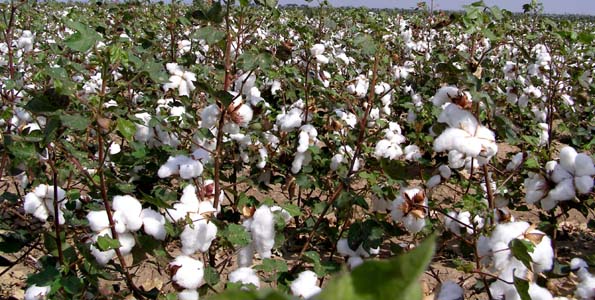
The county government of Kisumu has become the latest to start the push for reviving cotton farming and marketing to boost the income of farmers within the Lake Region Economic block by opening discussions with experts and stakeholders in the cotton industry.
This comes shortly after cotton farmers from Embu County last year petitioned the national government to lift the ban on biotechnology cotton with the fear that the industry could have deadly collapsed unless they were allowed to access BT cotton variety that can withstand pest attack and does not require spraying.
“Our renewed interest in cotton farming has been sparked by the expected high demand for Kenyan cotton in the US apparel market,” said Kisumu County governor, Prof. Peter Anyang’ Nyong’o.
“In addition to the expected high demand, we are also encouraged with the revamped of Rift Valley Textiles (Rivatex) and African Growth and Opportunity Act (AGOA) which will enable us secure the export market for our produce.”
RELATED ARTICLE: Cotton farmers to earn more as shortage bites
While the Act covers more than 6, 000 products that can be exported to the US on preferential trade terms, Rivatex was resuscitated by Moi University and turned it into a research facility for cotton development, extension and production.
Rivatex, the Eldoret town based industry also has outlets countrywide and sells its products which include khangas, flannels, bed sheets and cotton clothes both locally and in the international markets.
However, other cotton ginneries such as Kisumu Cotton Mills (Kikomi) failed to revive due to lack of viability as there was lack of land for the production of biotechnology cotton which could have led to lack of raw materials should the company been resurrected.
The cotton ginneries which are mostly located in western Kenya operates under the Cotton Board of Kenya.
Nyong’o said that the national government had embraced the high yielding BT cotton and asked farmers in known cotton growing areas within the region to shift focus to the crop to diverse their income.
RELATED ARTICLE: Kenya looses on Bt cotton fortunes as peers rake millions
Over 500 farmers within Kisumu and beyond had embraced sorghum farming following the contract between the farmers and Kenya Breweries Limited (KBL) making the farmers turned to the farming of the crop.
“We are in talks with various experts and have also partnered with Lake Basin Development Authority which has been conducting feasibility studies into the viability of cotton farming in the area,” said Nyong’o.
He said sorghum had already earned market at the newly established KBL plant in Kisumu and urged farmers to embrace cotton farming with the same spirit to up their income.
RELATED ARTICLE: Volatile markets, rebels take toll on Uganda cotton
Already Kenya Agricultural Research Institute (Kari) has new high yielding cotton seed varieties suitable for specific regions of the country. These include LKSA81M for Nyanza, Western and Rift Valley regions while HART89M is suitable for Eastern, Central and Coast regions.
It should be remembered that the cotton industry’s collapse has also been blamed on Kenyans turning to buying imported second-hand clothes which were much cheaper than locally made clothes.
















Comments powered by CComment